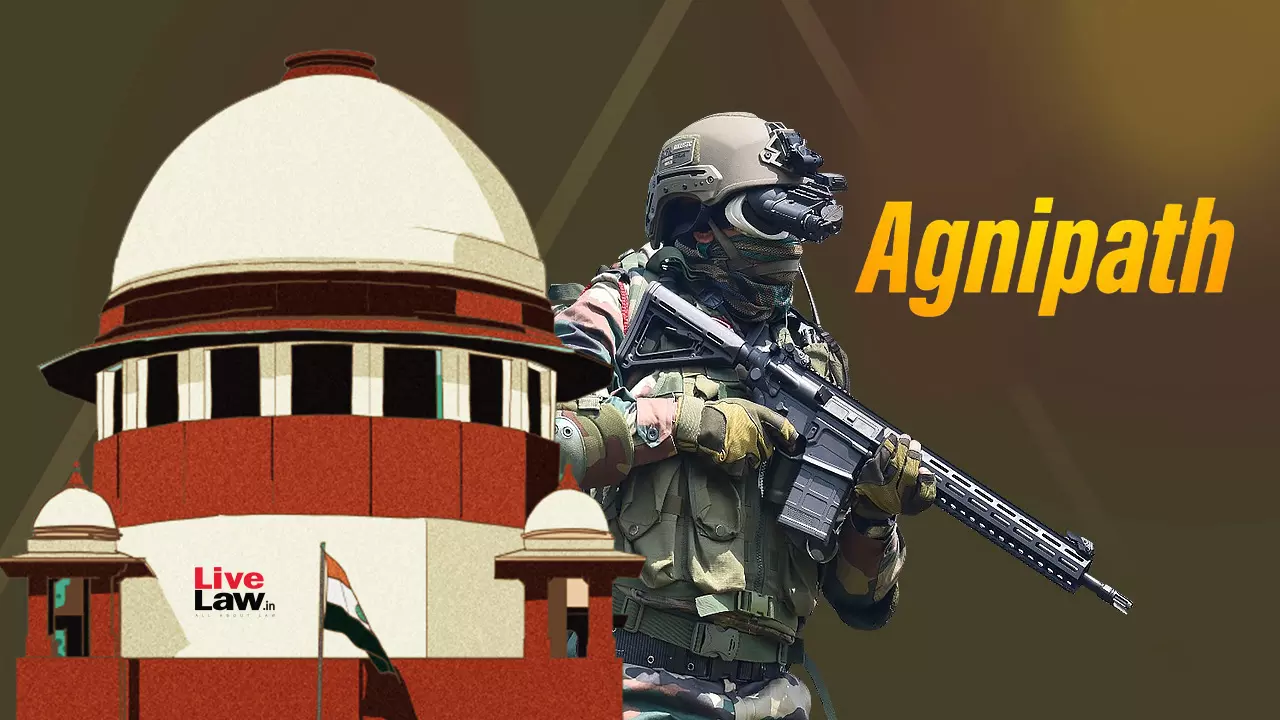Description

Copyright infringement not intended
Context: The Supreme Court dismissed petitions challenging the Agnipath scheme.
Details
Background
- Some of the petitioners were those who were shortlisted in previous Army and Air Force recruitment procedures.
- An advocate for some of these candidates informed the Supreme Court that their names were on a provisional list for recruitment to the Air Force, but the recruitment process stopped when the Agnipath plan was announced.
- They claimed that under the “law of promissory estoppel”, the government should be directed to complete the old process.
- They said that the old recruitment process included a written exam, a physical test, and a medical exam, after which a provisional selection list with ranks was released.

The doctrine of promissory estoppel
About
- Promissory estoppel is a legal notion that originated in contract law.
- A legal contract demands that an agreement be established with sufficient consideration.
- A claim of promissory estoppel simply prevents a "promisor" from withdrawing from an agreement because there is no "consideration."
- The theory is utilised in court by a plaintiff (the person filing a civil action) against the defendant to ensure contract performance or seek compensation for contract failure.
Related Case
- In Chhaganlal Keshavalal Mehta v. Patel Narandas Haribhai case (1981), the Supreme Court established a list of criteria for when the concept can be applied;
- There must be a clear and unambiguous promise.
- The plaintiff must have acted relying reasonably on that promise.
- The plaintiff must have experienced a loss.
How it related to Agnipath Scheme
- The lawyer's argument using the concept effectively indicates that the government's moves, such as putting up a shortlist, are a "promise" made by it.
- The other side here — the candidates acted on that commitment — they refused alternative employment in the CRPF, BSF, and so on — and must now be compensated for their loss.
Court verdict
- The court rejected the lawyers' argument. They pointed out that "promissory estoppel is always subject to the overarching public interest."
- The court said that "this is not a contract matter where promissory estoppel in public law was applied, it is a public employment" and that "the question of applying this principle will not arise in this case."

Must Read Articles:
Agnipath Scheme: https://www.iasgyan.in/daily-current-affairs/agnipath-scheme-7
Agniveers: https://www.iasgyan.in/daily-current-affairs/agniveer-1
|
PRACTICE QUESTION
Q. Consider the following Statement about the Agnipath Scheme;
1. The objective of the AGNIPATH Scheme is to encourage youth to serve in the Armed Forces for 6 years.
2. There shall be an entitlement to gratuity.
3. The eligibility age limit will be in the range of 17.5 to 25 years.
Which of the following Statement is/are incorrect?
(A) 1 and 2 only
(B) 2 and 3 only
(C) 1 and 3 only
(D) 1, 2 and 3
Answer: D
Explanation:
Statement 1 is incorrect: The objective of the AGNIPATH Scheme is to encourage youth to serve in the Armed Forces for 4 years.
Statement 2 is incorrect: There shall be no entitlement to gratuity and pensionary benefits.
Statement 3 is incorrect: The eligibility age limit will be in the range of 17.5 to 21 years.
|

https://indianexpress.com/article/explained/explained-law/what-does-promissory-estoppel-mean-8552259/















